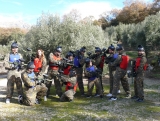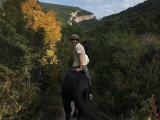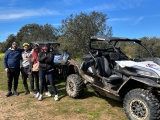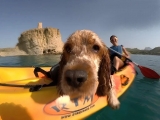If you're not an expert, we recommend joining a guided route with professionals. There are various options - you can check some here.

1. First aid kit. It might seem unnecessary for a short hike, but it costs little to carry basic supplies: scissors, space blanket, gauze, bandages, saline solution, Betadine (or similar). This could prove invaluable in emergencies.

2. Mobile phone. Yes, we all carry one, but... will you have battery if you need to call for help? Disable unnecessary functions to conserve power.

3. Warm clothing. It might be warm when you set out, but if you get lost overnight, will what you're wearing suffice? You don't need your entire wardrobe - some compact items provide excellent warmth when needed.

4. Map, compass or GPS. Even if you know the route, it never hurts to have navigation tools. Anyone can make a wrong turn.

5. Torch or headlamp. If night falls, continuing without proper visibility is dangerous, but light sources are crucial for signalling rescue teams. Remember spare batteries - just in case.

6. Lighter. Not for smoking (that's personal choice), but invaluable for staying warm. Rubbing sticks together is exhausting and rarely effective - pack a lighter.

7. Rope. Some paracord could mean the difference between sleeping exposed or under makeshift shelter, plus countless other uses.

8. Knife. An absolute essential - never hike without one. The uses are endless - enough to fill a whole blog!

9. Water. Never hike without water - even if there are springs en route, they might be dry or contaminated.

10. Food. If you're spending all day (or several hours) in the mountains, you'll need to replenish energy, right?

You could add many more items - remember the main thing is enjoying your hike, so pack whatever else you deem necessary.
What else do you usually pack? Tell us!












